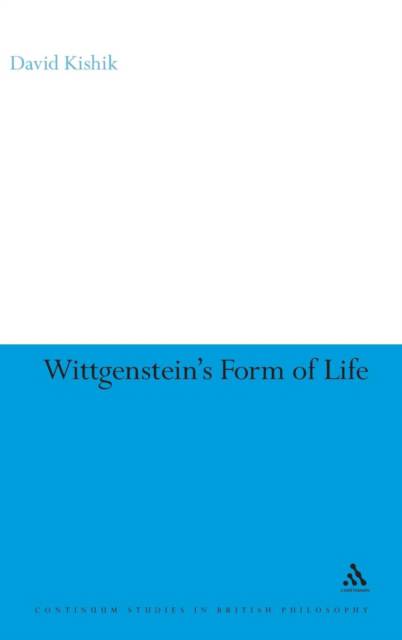
Je cadeautjes zeker op tijd in huis hebben voor de feestdagen? Kom langs in onze winkels en vind het perfecte geschenk!
- Afhalen na 1 uur in een winkel met voorraad
- Gratis thuislevering in België vanaf € 30
- Ruim aanbod met 7 miljoen producten
Je cadeautjes zeker op tijd in huis hebben voor de feestdagen? Kom langs in onze winkels en vind het perfecte geschenk!
- Afhalen na 1 uur in een winkel met voorraad
- Gratis thuislevering in België vanaf € 30
- Ruim aanbod met 7 miljoen producten
Zoeken
Omschrijving
Wittgenstein's Form of Life reveals the intricate relationship between language and life throughout Ludwig Wittgenstein's work. Drawing on the entire corpus of his writings, David Kishik offers a synoptic view of Wittgenstein's evolving thought by considering the notion of form of life as its vanishing center.
The book takes its cue from the idea that 'to imagine a language means to imagine a form of life', in order to present the first holistic account of Wittgenstein's philosophy in the spirit of a new wave of interpretations, pioneered by Stanley Cavell, Cora Diamond and James Conant. It is also an enticing contribution to the rising discourse revolving around the subject of life, led by the recent work of Giorgio Agamben. Standing on the threshold between the Analytic and the Continental philosophical traditions, Kishik shows how Wittgenstein's philosophy of language points toward a new philosophy of life, thereby making a unique contribution to our ethical and political thought.
The book takes its cue from the idea that 'to imagine a language means to imagine a form of life', in order to present the first holistic account of Wittgenstein's philosophy in the spirit of a new wave of interpretations, pioneered by Stanley Cavell, Cora Diamond and James Conant. It is also an enticing contribution to the rising discourse revolving around the subject of life, led by the recent work of Giorgio Agamben. Standing on the threshold between the Analytic and the Continental philosophical traditions, Kishik shows how Wittgenstein's philosophy of language points toward a new philosophy of life, thereby making a unique contribution to our ethical and political thought.
Specificaties
Betrokkenen
- Auteur(s):
- Uitgeverij:
Inhoud
- Aantal bladzijden:
- 158
- Taal:
- Engels
- Reeks:
Eigenschappen
- Productcode (EAN):
- 9781847062239
- Verschijningsdatum:
- 1/10/2008
- Uitvoering:
- Hardcover
- Formaat:
- Ongenaaid / garenloos gebonden
- Afmetingen:
- 160 mm x 236 mm
- Gewicht:
- 399 g

Alleen bij Standaard Boekhandel
+ 746 punten op je klantenkaart van Standaard Boekhandel
Beoordelingen
We publiceren alleen reviews die voldoen aan de voorwaarden voor reviews. Bekijk onze voorwaarden voor reviews.









